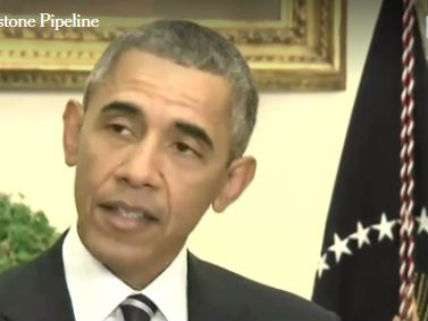Obama Rejects Keystone Oil Pipeline: Not in National Interest
"The pipeline would not make a meaningful long-term contribution to our economy."

After 7 years of dithering, President Barack Obama has decided to reject the construction of the Keystone pipeline as not being in the national interest. Evidently, the U.S. has no interest in transporting, refining, and using 800,000 barrels of oil per day from Canada. In his role as economist-in-chief and business-development czar, the president magisterially declaimed: "The pipeline would not make a meaningful long-term contribution to our economy."
The New York Times reports:
The move was made ahead of a major United Nations summit meeting on climate change in Paris in December, when Mr. Obama hopes to help broker a historic agreement committing the world's nations to enacting new policies to counter global warming. While the rejection of the pipeline is largely symbolic, Mr. Obama has sought to telegraph to other world leaders that the United States is serious about acting on climate change.
Although not formally announced, President Obama is likely to show up with leaders of 80 or so other countries for the the ribbon cutting at the opening of the U.N. climate change conference in Paris at the end of the month.
Environmental activists are ecstatic. In a press release from 350.org, the group's founder Bill McKibben notes:
"President Obama is the first world leader to reject a project because of its effect on the climate. That gives him new stature as an environmental leader, and it eloquently confirms the five years and millions of hours of work that people of every kind put into this fight. We're still well aware that the next president could undo all this, but this is a day of celebration."
Here's a bet: If oil prices rise later in this decade, another president will find that constructing the pipeline is a shovel-ready project in the national interest.


Show Comments (127)